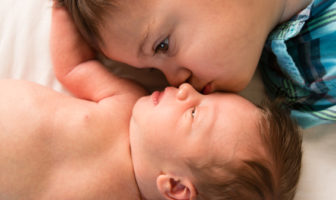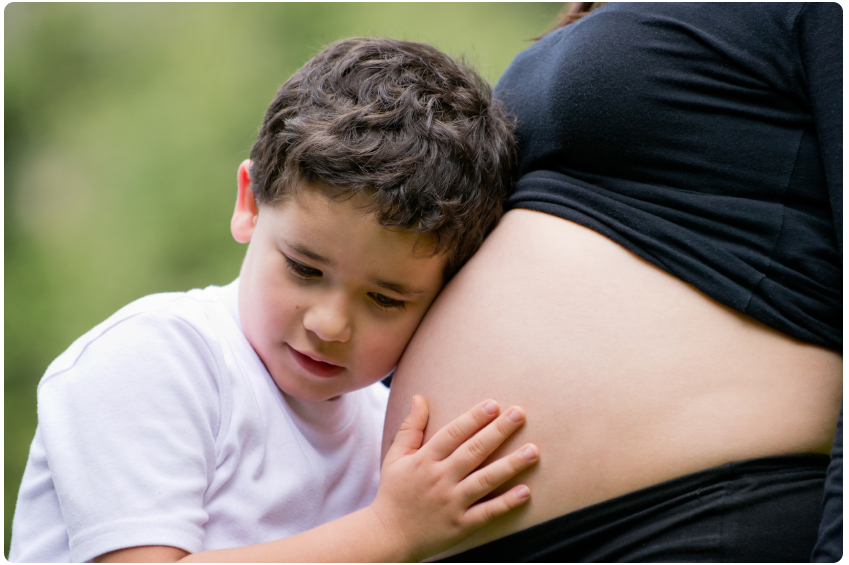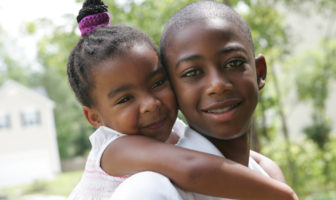Read this article for information on what parents can do to curb sibling bullying.

Becoming a Sibling
Bringing home a new baby is an exciting event for the entire family.
However, it requires a lot of preparation and is a time for adjustment for both you and your older child. While a sibling is a very special gift that your child will treasure throughout her life, in addition to the excitement, she may at times feel ignored, jealous, or even angry. While preparing your home for the arrival of the new baby, it is important that you also prepare your older child.
How to help your child prepare for a new sibling:
Keep your older child in the loop. It is important that you tell your child early on about the new baby. Not only does he need time to adjust, but you also do not want him to hear it from someone else first. Include him by bringing him to doctors’ appointments, letting him hear the baby’s heartbeat, and assisting in any preparations. Involve him in some decision-making so he realizes the importance of his role as a big brother. Most importantly, make sure he knows what to expect when the big moment arrives by letting him know things like how long you will be gone and where he will stay. Some hospitals have classes for siblings that you should ask about.

Keep your eyes and ears open. Be sure to listen to and observe your child throughout the pregnancy. Ask her often how she feels about the new baby. There are many children’s books you can read to her about becoming a big sibling. Visit a friend with a baby and take your child with you or use a doll to show your child how to practice holding a baby. Share stories and pictures from when she was a baby. You may find that your child is not interested in talking about the new baby and that is normal. While she may regress or need a little extra TLC, do not bend the rules.
Transition as early as possible. If your child will have to undergo changes as a result of the new baby, such as changing bedrooms, moving out of a crib, or potty training be sure to start the transition early. Make it about him becoming a big boy and not about the arrival of the new baby. Explain to him how he is growing up and therefore gets to try something new. Emphasize his independence, especially if the baby will be sleeping in your room after it arrives. Make sure he knows what to expect in the baby’s behavior – babies may not be very exciting in the beginning but they still need a lot of care and attention.
Watch what you say and do. Be careful not to blame the new baby for your limitations so that your child does not resent her new sibling. For example, instead of telling your child that you cannot sit on the floor and play with her because of the baby, say that you cannot sit on the floor and play with her because your back hurts. When other people visit before and after the baby is born, make sure your child gets some special attention too.
Set aside some one-on-one time. After the arrival of the new baby, make sure you set aside some one-on-one time with your child. Make him feel like the important older sibling. Include him in a certain errand or task that just you and him share. You might also arrange for some one-on-one dad time or time with another relative to make him feel special. Spending dedicated time with your older child and reminding him that he is still special to you will help improve his adjustment to being a big sibling.
other articles and videos we love
It may be easier said than done to “focus on the children,” but here are seven tips for doing it well from local parents who are succeeding in co-parenting without resentment.
Experience has taught us that actions by adults can be more effective than expecting kids to protect themselves from sexual abuse. Still, we know that children also need accurate, age-appropriate information about child sexual abuse and confidence that adults they know will support them.






